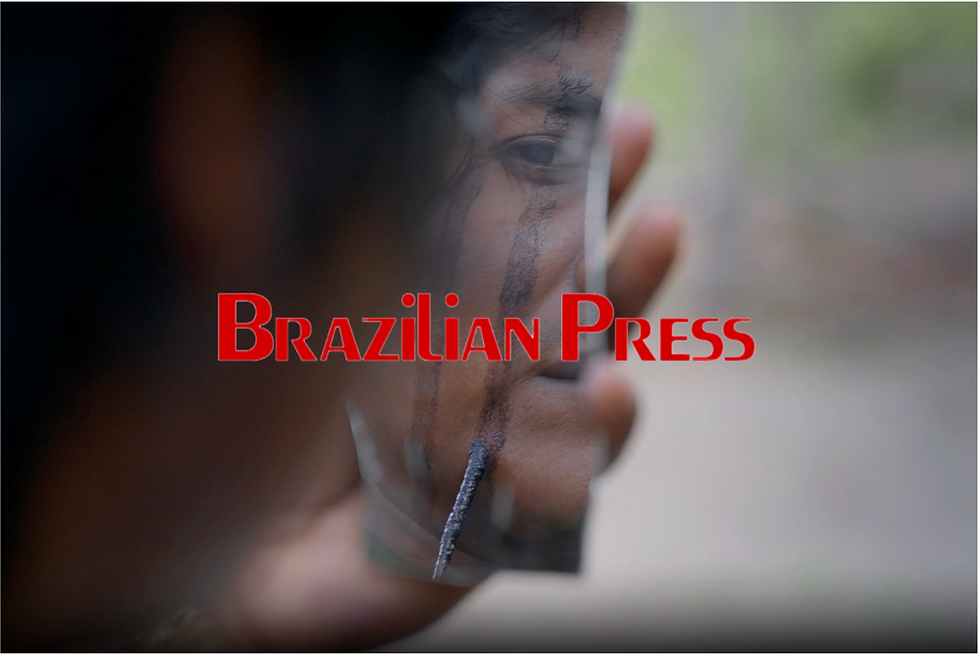Chelsea Greene, director of We Are Guardians: The documentary has raised hundreds of thousands of dollars to reforest the Amazon
- Mar 19, 2024
- 3 min read
The documentary We Are Guardians seeks to generate a positive impact in the Amazon

We Are Guardians is a documentary directed by Edivan Guajajara, Chelsea Greene and Rob Grobman. It was produced by Highly Flammable and Mídia Indígena. This content, currently available on Netflix, portrays the work of the Guajajara and Tembé indigenous guardian groups, who fight to protect the Amazon rainforest from deforestation caused by illegal loggers. Likewise, it shows the perspective of the loggers who see clandestine logging as their only means of subsistence.
Greene commented that for several years she and Grobman had contemplated the idea of doing a project about the environmental damage suffered by this area of the world. In their search for resources, they obtained financing from different private investors, as well as from figures such as Fisher Stevens (Oscar-winning producer) and actor Leonardo DiCaprio (who was executive producer).
On a trip to Brazil in 2020 they met Edivan, a local filmmaker who joined the initiative as a cameraman and director. Likewise, he was key to having access to the Guajajara indigenous community, of which he is a part. Thanks to the production company Banksia Films they were able to contact the forest guards of the Tembé town.
CONFLICTS AND CHALLENGES During the recordings they followed the work of these environmental groups, who on different outings tried to find and expel loggers from the forest. “Sometimes we would hear the loggers and their chainsaws in the distance, and we would try to run towards them, but we would get lost or they would run away. We did eight missions without success until we got it,” Greene said.
He assured that the most challenging part of the filming was the harassment they received from some loggers: “We obtained permission from some loggers to be with them, but when another group found out that we were filming and exposing their illegal work within the indigenous territory , they started sending us death threats. So we had to leave the territory and rent another car to go unnoticed.”
With a crew of only four people, they traveled to the jungle in rented cars on trips of up to 14 hours. To reach certain points they had to travel in boats across rivers. “We slept in hammocks, trying to carry all the water and food on our backs, it was very difficult and heavy, although we never spent more than four days in a row sleeping there before returning to a village,” said the filmmaker.
To communicate with the locals they had the help of an interpreter. Likewise, they brought solar panels to charge the equipment in the middle of nature. They filmed with Panasonic Lumix S1H cameras due to their quality and small size. He stressed that this allowed the people they recorded with to feel more comfortable, since a large camera “could be more intimidating.”
CINEMA AS AN AGENT OF IMPACT After two years of editing, they finished the documentary. Since then they have started a campaign to achieve a positive impact through this product. They recently obtained a US$200,000 grant from the charity Erol Foundation and another similar sum from The RandomGood Foundation.
These funds will be destined to support the efforts of the indigenous guardians of the Amazon rainforest with essential supplies that help protect their territorial borders, as well as to establish reforestation and agroforestry projects in these territories to contribute to the long-term autonomy of the communities. Tembé and Guajajara. Green also revealed that investors have chosen to donate profits from the sale of the documentary to Netflix (the platform on which it was released on January 28) to indigenous groups.
Beyond that, the film has participated in various international festivals and won awards such as the Peace International Green Film Award. The filmmaker hopes that, through this exhibition, more people will feel inspired to care for the Amazon, a place through which a fifth of the Earth's fresh water passes.




Comments